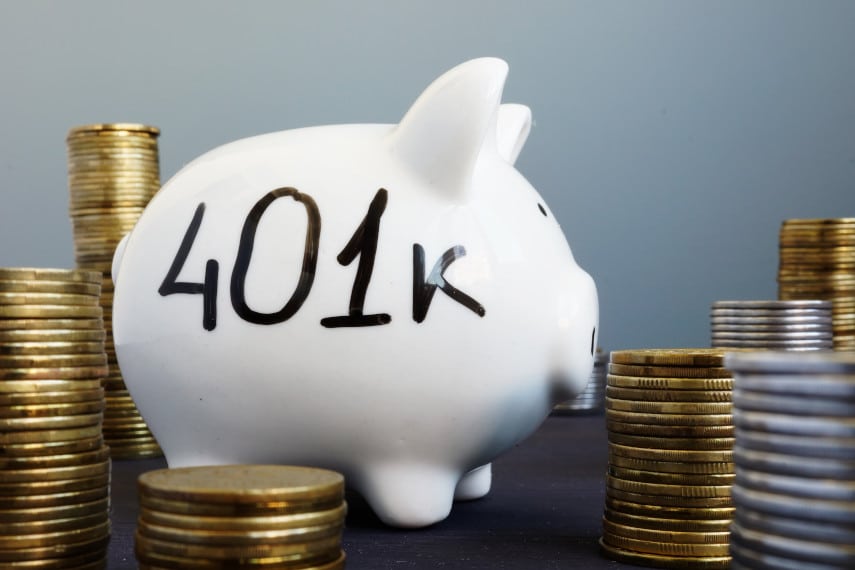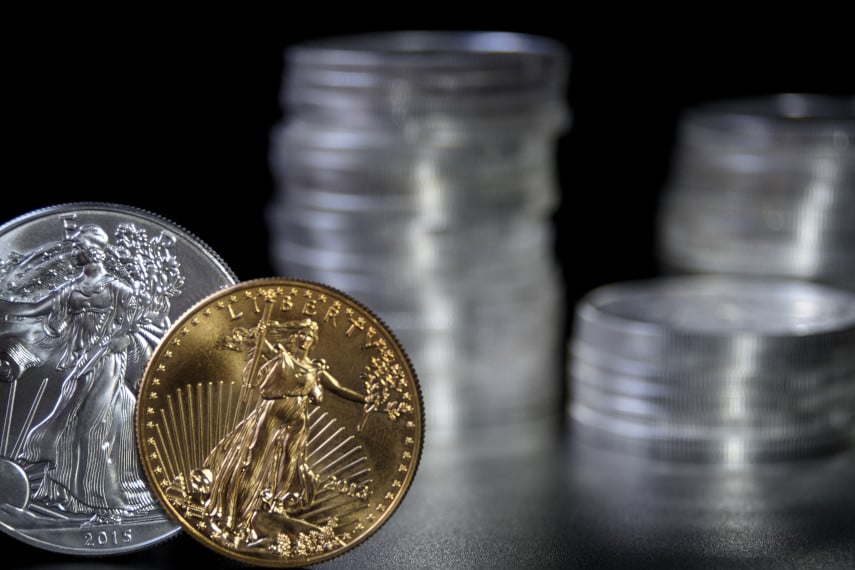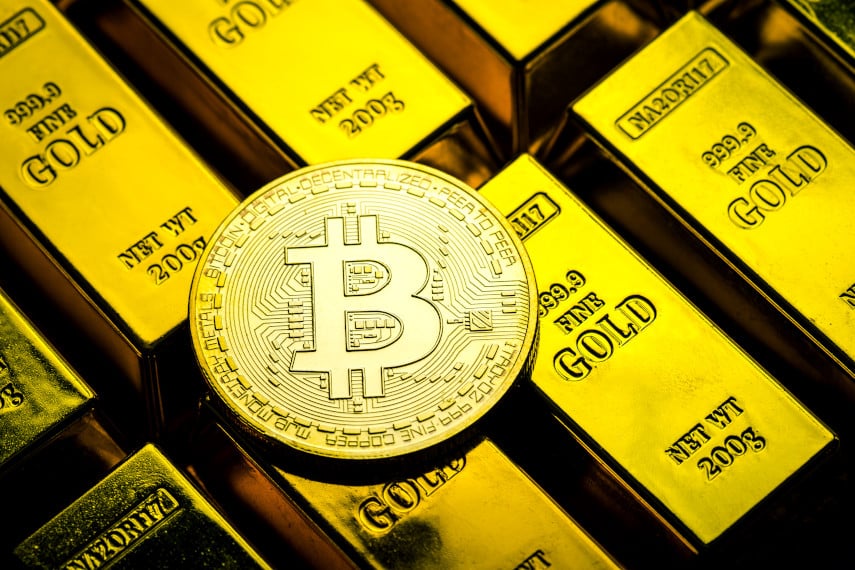
All investors want to know whether their investments are going to increase or decrease in value. It would obviously be much easier to invest only in assets that we know are going to increase in value, and avoid those that are going to decrease in value. But as the future is unpredictable, we can’t ever say for certain whether our investments will gain value or lose value. The best we can do is educate ourselves about our investment choices, make an educated guess, hope for the best, and cut our losses if we choose wrong.
But despite our inability to foresee the future with absolute certainty, there are still some assets whose future performance can be reasonably predicted with some certainty. We know, for instance, that stock market indexes, for instance, will tend to rise over time.
We also know that inflation will continue to increase over time, and therefore assets that maintain their value against inflation will continue to rise in price. That’s why gold, a monetary metal and popular investment asset, should also continue to rise in price over time.
But as with any investment, it’s just a question of when the price rise will take place. If buying low and selling high is the key to making money, then you as an investor want to know when to buy, when to sell, and what the future performance of your assets will be.
If you’re looking to invest in gold, whether it’s to protect your retirement savings against inflation, to build up wealth in retirement, or to hedge against a stock market crash, you’ll want to know under what conditions gold will rise or fall, and plan your investments accordingly.
What Causes the Gold Price to Increase?
1. Declining Supply
As with any other good, gold is subject to the laws of supply and demand. If supply decreases, all other things being equal, the price will increase. Gold production is very resource intensive, and it doesn’t take much to negatively impact gold production. From labor disruptions to power outages, a single mine going down for a month or two can impact gold supply and cause prices to rise.
The price of certain gold products such as gold coins and gold bars is also impacted by supply factors. Just because gold ore is mined and gold ingots are created doesn’t mean that mints are able to produce enough gold coins or bars to satisfy investor demand. If supply from mints is insufficient to meet investor demand, then the gold price should be expected to rise.
2. Increased Demand
Investor demand for gold makes up a tremendous percentage of gold demand, and that investor demand can increase in a very short period of time. If more investors decide suddenly to buy gold, it can quickly lead to sharp increases in the price of gold.
3. Inflation
Inflation leads to a rise in prices of all goods, and gold is no exception. Where gold excels, however, is that it maintains its value against inflation over time. And the higher inflation rises, the higher the gold price normally rises, as investors flock to gold to protect the value of their savings against inflation by investing in gold.
4. Loose Monetary Policy
Central bank monetary policy is always a key driver of the gold price, particularly over the last two decades. With the onset of quantitative easing and continued loose monetary policy, trillions of dollars have flooded the economy over the past several years. Not only has that driven up prices of food, housing, and energy, but it has also helped fuel a rise in the gold price.
The more money central banks create out of thin air and pump into the economy, the more devalued each dollar becomes. And as the value and purchasing power of the dollar decreases, the more investors will seek to invest in gold, leading to a rise in the gold price.
5. Uncertainty
One of the greatest drivers of the gold price is investor uncertainty. Whether it’s fear over the strength and health of the economy or uncertainty about political stability, the more investors fear the future and the unknown, the more they seek to buy and hold gold, with the gold price increasing correspondingly.
What Causes the Gold Price to Decrease?
1. Increasing Supply
Increasing gold supply will, all other things being equal, lead to a decrease in the gold price. In practice, however, gold production can’t realistically be increased to any large degree. It can take anywhere from 3 to 30 tons of rock to produce a single ounce of gold, meaning it can take up to 12,000 tonnes of rock being mined, crushed, and processed to produce a single 400-ounce gold bar. Multiply that by the tens of millions of ounces that are produced each year, and you quickly realize just how difficult it is to ramp up gold production.
One of the major advantages to gold is the fact that its production can’t be increased rapidly. Each year’s production of gold only adds a small percentage to the amount of existing above-ground gold, meaning that, unlike paper currencies that can devalue as central banks create more money, gold can’t ever be devalued in that way.
2. Decreased Demand
Decreased demand for gold will also, all other things being equal, lead to a decrease in the gold price. In most instances this happens in the aftermath of stock market crashes. Once markets recover, stabilize, and begin to grow again, fearful investors think that they no longer have to protect their assets. Their demand for gold drops as they once again pile into stock markets.
3. Tight Monetary Policy
Central banks that engage in tight monetary policy and that don’t try to inflate their money supplies or devalue their currencies can lead to a decrease, or at least a flattening, of the gold price. In practice, however, the past several decades have seen a relentless upward trend towards inflation and loose monetary policy, so much so that tight monetary policy as it has traditionally been understood may be forever a thing of the past.
4. Strong Economy
When economies are strong and investors are confident of the future, they don’t fly to the safety and security of gold. They’re more than happy to stick to what they know best, like stocks and bonds. So as economies and markets grow and improve in the aftermath of financial crises, you shouldn’t be surprised to see a decrease in the gold price. But what happens when economies don’t recover, or take years or decades to recover?
How Steady is the Price of Gold?
One reason so many investors trust gold for investment purposes is the fact that gold holds and maintains its value over time. The gold price has only moved freely for about 50 years, as before then its value was tightly controlled by world governments since it was the world’s primary monetary metal, so it doesn’t have quite the track history that other assets do. But the history of gold as an investment and as a hedge goes back centuries, if not millennia.
Investors have trusted gold because its value has been so consistent over time. Even with ups and downs, it hasn’t been subjected to the same fluctuations as stock markets have been. Its price is much less volatile. And over time, the gold price keeps pace with or even outperforms stock markets. Over the past 50 years, the average annualized gains for gold have exceeded those of the Dow Jones and the S&P 500.
If you’re looking for an asset that can provide you with stability as well as price growth, you might want to consider taking a look at investing in gold. An increasingly popular option for gold investment is a gold IRA.
With a gold IRA, you can invest in physical gold coins and bars while still enjoying the same tax advantages as a normal IRA. You can even roll over or transfer assets from existing retirement accounts such as 401(k), IRA, TSP, and similar accounts into a gold IRA, allowing you to protect your existing retirement assets without suffering any tax consequences.
Do you have retirement savings that you want to protect against inflation, market volatility, or economic turmoil? Are you afraid that the economy, and your investments, might suffer a repeat of 2008? If so, you might want to think about buying gold to protect your wealth.
The experts at Goldco have years of experience helping investors just like you protect their savings with an investment in gold. Don’t leave your assets unprotected any longer. Contact Goldco today to learn more about how you can protect your retirement investments with gold.






